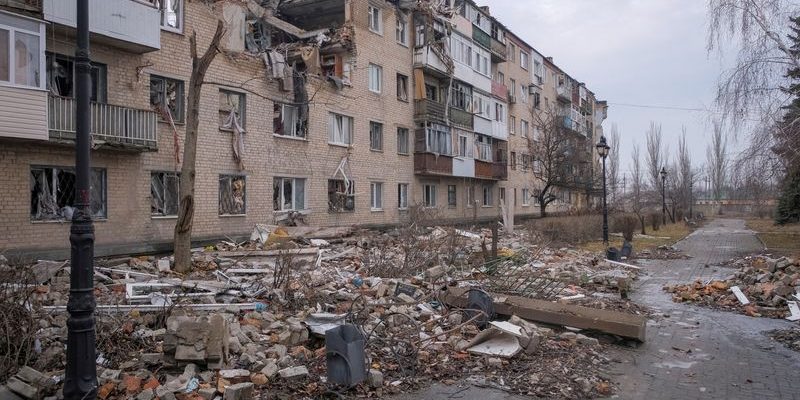(Reuters) – Ukraine’s armed forces have managed to counter a Russian offensive in and around the eastern town of Bakhmout, where the situation is stabilizing, Commander-in-Chief General Valeri Zalouzhny said on Saturday.
The British Ministry of Defense for its part said that the Russian assault on the city, which has lasted for months, has stalled, mainly because of the heavy losses suffered by Russian troops.
According to military experts, there are clear signs that Russia lacks equipment, especially heavy tanks.
Russian President Vladimir Putin told state television that Russia plans to build and upgrade a total of 1,600 tanks over the next three years, far more than the 440 tanks he says will be supplied to Ukraine. by Western countries during the same period.
Bakhmut is a major target for Russia, which seeks to completely take over Ukraine’s industrial Donbass region.
Russian military officials have repeatedly claimed that the city will soon fall, but the Ukrainian army is defending its positions in the city with heavy fighting.
“The direction of Bakhmout is the most difficult. Thanks to the titanic efforts of the defense forces, the situation is stabilizing,” General Valeri Zalouzhny said in a message on the Telegram app after a conversation with his British counterpart Tony Radakin.
While promising more tanks, Vladimir Putin also reiterated his criticism of British plans to supply Ukraine with tank ammunition containing depleted uranium.
“Russia, of course, has something to answer for. We have, without exaggeration, hundreds of thousands, yes hundreds of thousands of such shells. We haven’t used them yet,” the Russian president said. .
In its daily update, the British Ministry of Defense estimated that Russia was probably seeking to stabilize its front line and adopt a more defensive strategy.
(Report David Ljunggren, French version Matthieu Protard)
©2023 Thomson Reuters, all rights reserved. Reuters content is the intellectual property of Thomson Reuters or its third party content providers. Any copying, republication or redistribution of Reuters content, including by framing or similar means, is expressly prohibited without the prior written consent of Thomson Reuters. Thomson Reuters shall not be liable for any errors or delays in content, or for any actions taken in reliance thereon. “Reuters” and the Reuters Logo are trademarks of Thomson Reuters and its affiliated companies.
